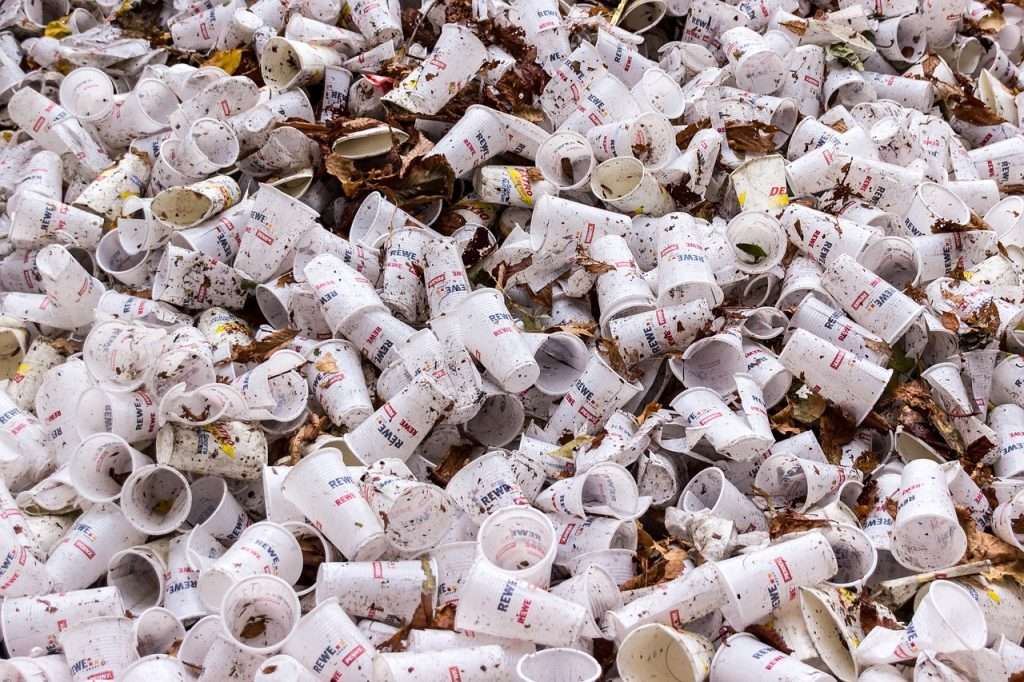Mindfulness and change go hand in hand. If you want to pursue zero waste, you first need to learn how to be mindful. Evaluate your habits and your waste.

It is true that ‘Zero Waste’ is more or less a marketing phrase that intrigues people. The idea behind it, however, is worth looking into. We could all stand to actively produce less waste.
Zero waste isn’t possible today
What you need to understand about ‘Zero Waste’ is that there will always be some waste, in some part of the cycle. Especially when it comes to purchased goods. When you buy something, somewhere between production and delivery, there will be some waste. That is unavoidable. Even if you make all your clothes yourself and grow all your food yourself, the fabric will most likely be packaged, as will the soil and the seeds.
So what can you do?
The content below was originally paywalled.
What you can change, however, is what kind of waste is produced and how much of it. You can turn your waste into the bare minimum amount and you can go from producing non-biodegradable waste such as plastic, to producing biodegradable waste that can be composted, reused or re-purposed.
Focus on need, not greed
When it comes to shopping, say no to plastic bags. Bring your own fabric bags or if you must get a bag, choose paper instead.
For purchasing fruits and greens, don’t use the plastic bags the grocery stores have. Bring your own produce bags.
Buy items in bulk and more rarely, and if possible, in paper bags/boxes rather than plastic.
Stop purchasing pre-packaged meals and expensive snacks. They produce a lot of waste, are pricey, and often contain additives and to be frank, cooking for yourself is far healthier and kinder to your wallet.
Limit your budget
To reduce both your waste and spend less money, shop less often. To approach the concept of zero waste, try out the NO-SPEND challenge for a week, a month or even a year.
Just like when you try to eat healthier and manage your nutrition, keep a journal and log your purchases, with dates and motive behind the purchase and the waste you produced as a result. Doing so even just for a week will give you a better idea of where you can make changes and what you can stop doing completely. Most things we do in life are either because we want to or out of habit. If you want to do it, you can tweak details around it, and if it is simply something you do out of habit, change your habits for more sustainable ones.
You can read more about saying no to plastics and how to go from using plastic to using sustainable alternatives here on this site.
Make use of your waste
Here is a list of simple ways to start reducing your waste today.
Make your own coffee and bring it with you in a travel mug.
Switch to metal or fabric coffee filters.
Bring fabric shopping bags and say no to plastic ones.
Find ways to re-purpose the waste you do produce.
Don’t buy junk-food or prepackaged meals.
If there is a junk-food you love, learn how to make it at home.
Start growing your own food.
Switch your deodorant for a crystal.
Switch your plastic toothbrush to a bamboo one.
Make your own toothpaste.
Use a city compost for your food waste and turn it into soil and fertiliser.
Change your eating habits into healthier ones and buy in bulk.
Go shopping less often.
Don’t buy prepackaged fruit and veggies.
Say no to plastic.
Re-use glass jars.
Switch some of your pharmaceuticals to herbal remedies.
Make your own herbal supplements.
When buying online, ask for more eco-friendly packaging.
Buy local and support small brands
Those tips should get you started on lowering your waste and acquiring more sustainable habits.
The ultimate sustainability tip I have come across thus far, however, is the famous quote from the Depression era.
“Use it Up, Wear It Out, Make it Do or Do Without!”
Discover more from Desoullife
Subscribe to get the latest posts sent to your email.
